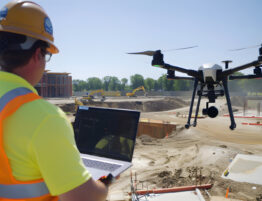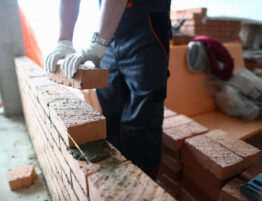Every person working in a company brings something unique to the table. Recognising and using individual strengths can change how a team works together, fostering a culture of collaboration and excellence
Whether you’re working on-site or in the office, identifying your strengths and sharing them with others is your chance to make a significant impact. Read on for more about how this process can lead to the implementation of best practice across an entire business.
Discovering strengths on-site and in the office
On-site, strengths might include specific construction skills, such as expertise in bricklaying carpentry, or welding. Perhaps you’re the go-to person for operating complex machinery or someone who has an unmatched eye for safety, quickly identifying hazards others might miss. You might excel at reading and interpreting drawings or mentoring new team members as they learn the ropes.
In the office, strengths could lie in areas like IT proficiency, organisational ability or creativity. You might be adept at crafting engaging presentations or videos to communicate complex ideas. Maybe you’re a wizard with numbers, identifying cost-saving opportunities, or you’ve got the confidence to lead meetings and inspire teams. Even soft skills like being a great listener or a natural problem-solver can make a difference.
Sharing your strengths
Once you’ve identified your strengths, the next step is to share them with your colleagues. Doing so not only helps others but can also solidify your knowledge and build your confidence. Here are a few examples of how you might share your skills:
- Organisational skills: If you excel at organising workflows or managing schedules, consider explaining your process to colleagues or creating a simple guide they can follow. Sharing tips on how you stay on top of tasks can make a big difference for others.
- Technical skills: Are you great at using specific software, such as CAD programs or project management tools? You could create a brief training session, complete with screenshots and step-by-step instructions, to help others learn more quickly.
- On-site expertise: If you’re skilled in a particular construction technique, consider leading a Toolbox Talk to demonstrate it. These practical, on-site discussions are a great way to share hands-on knowledge with your team.
- Creative talents: If you have a knack for creating impactful presentations or videos that showcase your work, offer to run a workshop or share templates others can use to enhance their projects.
Sharing strengths doesn’t always have to be formal. Even informal conversations and mentorship can be incredibly valuable. Simply showing a colleague how you approach a task can help them see new ways to tackle their own challenges.
As Stephen R. Covey, author of ‘The 7 Habits of Highly Effective People’ said, “Strength lies in differences, not in similarities.” By sharing your unique abilities with others, you help build a stronger, more versatile team.
Building a culture of best practice
By recognising and sharing strengths, individual workers can contribute to a wider culture of best practice. When everyone learns from each other, the organisation as a whole becomes more efficient, adaptable and innovative. The knowledge and skills shared today can set the foundation for future success, ensuring that best practices are not only developed but consistently followed across the company.
So, take a moment today to think about your strengths and how you might share them with others. Together, we can build not just better projects, but better teams and a stronger company.
14.01.2025
Feature image: Rawpixel/Shutterstock.com








